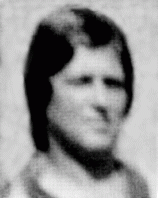
Marie Sidi Stojka
Born: 1906
Austria
Marie belonged to a tribe of Roma ("Gypsies") called the Lowara Roma who traveled in a caravan and made a living as itinerant horse traders. The caravan spent winters in Vienna, Austria's capital, and summers in the Austrian countryside. When Marie was 18, she married Karl Stojka from the same tribe. Marie's family was Roman Catholic and her ancestors had lived in Austria for more than 200 years.
1933-39: By 1936 Marie had six children. They lived with a caravan, and were used to freedom, travel and hard work. Their wagon was parked for the winter in a Vienna campground when Germany annexed Austria in March 1938. The Germans ordered them to stay put and they lost their civil rights. They had to convert their wagon into a wooden house and Marie had to learn how to cook in an oven instead of on an open fire.
1940-44: Roma were forced to register as members of another "race." Their campground was fenced off and placed under police guard. A year later, the Germans took Marie's husband away; they returned his ashes a few months later. Grieving, Marie cut her long hair, and with the help of a priest, secretly buried his remains in consecrated ground. Finally, the Germans deported the rest of them to a Nazi camp in Birkenau for Roma. Marie watched over her children as best she could in that terrible place, but her youngest son died of typhus.
In 1944 Marie was deported to Ravensbrueck, and was eventually liberated in April 1945 in Bergen-Belsen. After the war, she was reunited with her five surviving children.

